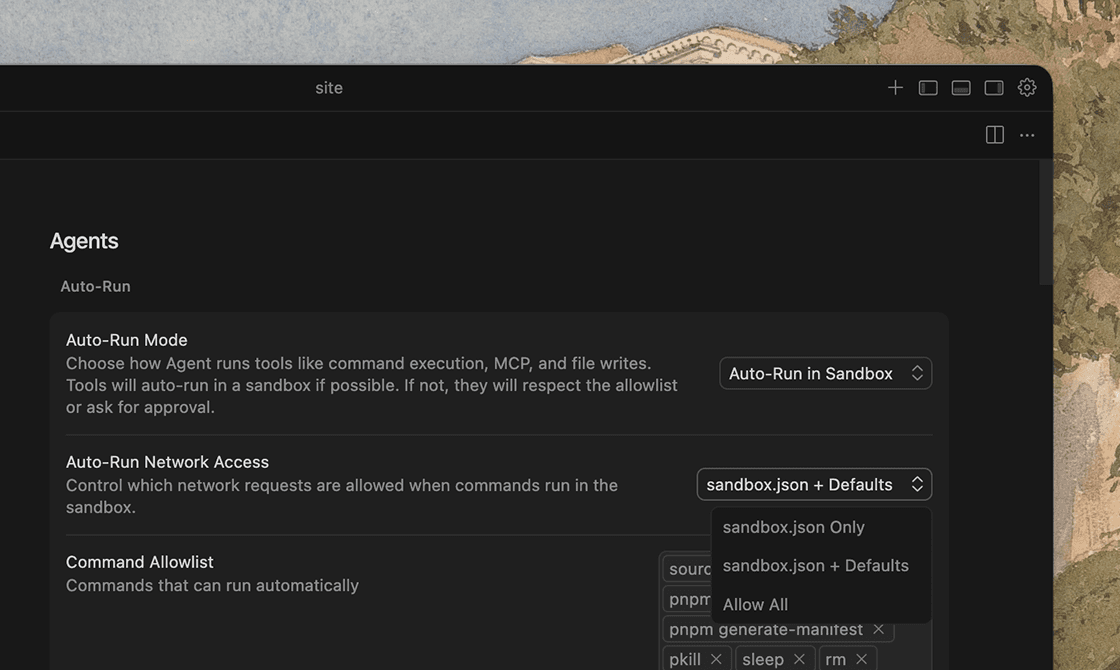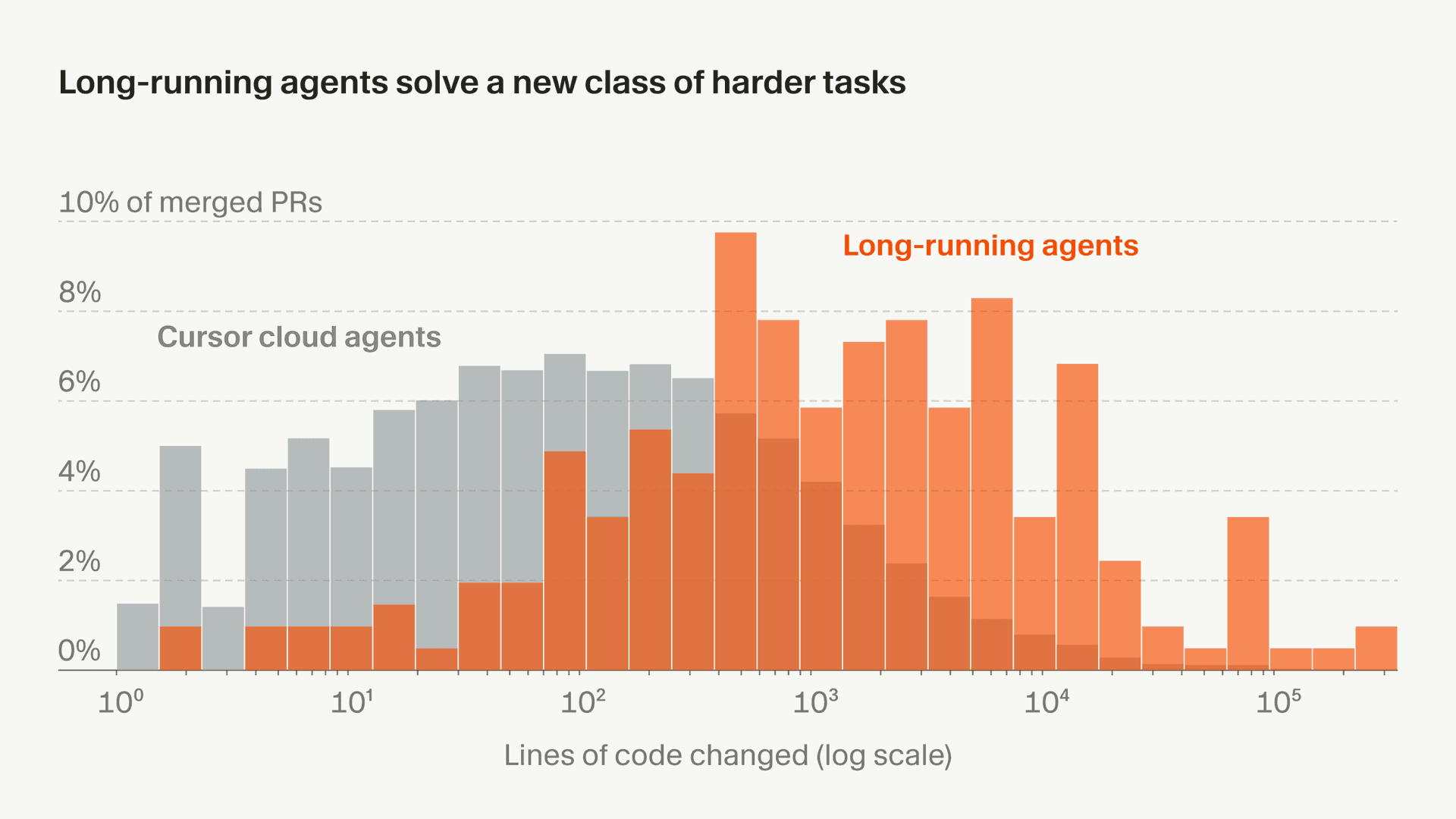Plugins, Sandbox Access Controls, and Async Subagents
This release introduces plugins for extending Cursor, improvements to core agent capabilities like subagents, and fine-grained network controls for sandboxed commands.
Plugins on the Cursor Marketplace
Plugins package skills, subagents, MCP servers, hooks, and rules, into a single install. The Cursor Marketplace lets you discover and install plugins to extend Cursor with pre-built capabilities.
Our initial partners include Amplitude, AWS, Figma, Linear, Stripe, and more. These plugins cover workflows across design, databases, payments, analytics, and deployment.
Browse plugins at cursor.com/marketplace or install directly in the editor with /add-plugin.
Read more in our announcement.
Sandbox network access controls
The sandbox now supports granular network access controls, as well as controls for access to directories and files on your local filesystem. Define exactly which domains the agent is allowed to reach while running sandboxed commands:
- User config only: restricted to domains in your
sandbox.json - User config with defaults: restricted to your allowlist plus Cursor's built-in defaults
- Allow all: unrestricted network access within the sandbox

Admins on the Enterprise plan can enforce network allowlists and denylists from the admin dashboard, ensuring organization-wide egress policies apply to all agent sandbox sessions.
Async subagents
Previously, all subagents ran synchronously, blocking the parent agent until they complete. Subagents can now run asynchronously, allowing the parent to continue working while subagents run in the background.
Subagents can also spawn their own subagents, creating a tree of coordinated work. This allows Cursor to take on bigger tasks like multi-file features, large refactors, and challenging bugs.
We've also made some performance improvements to subagents since our last release. They now run with lower latency, better streaming feedback, and more responsive parallel execution.



